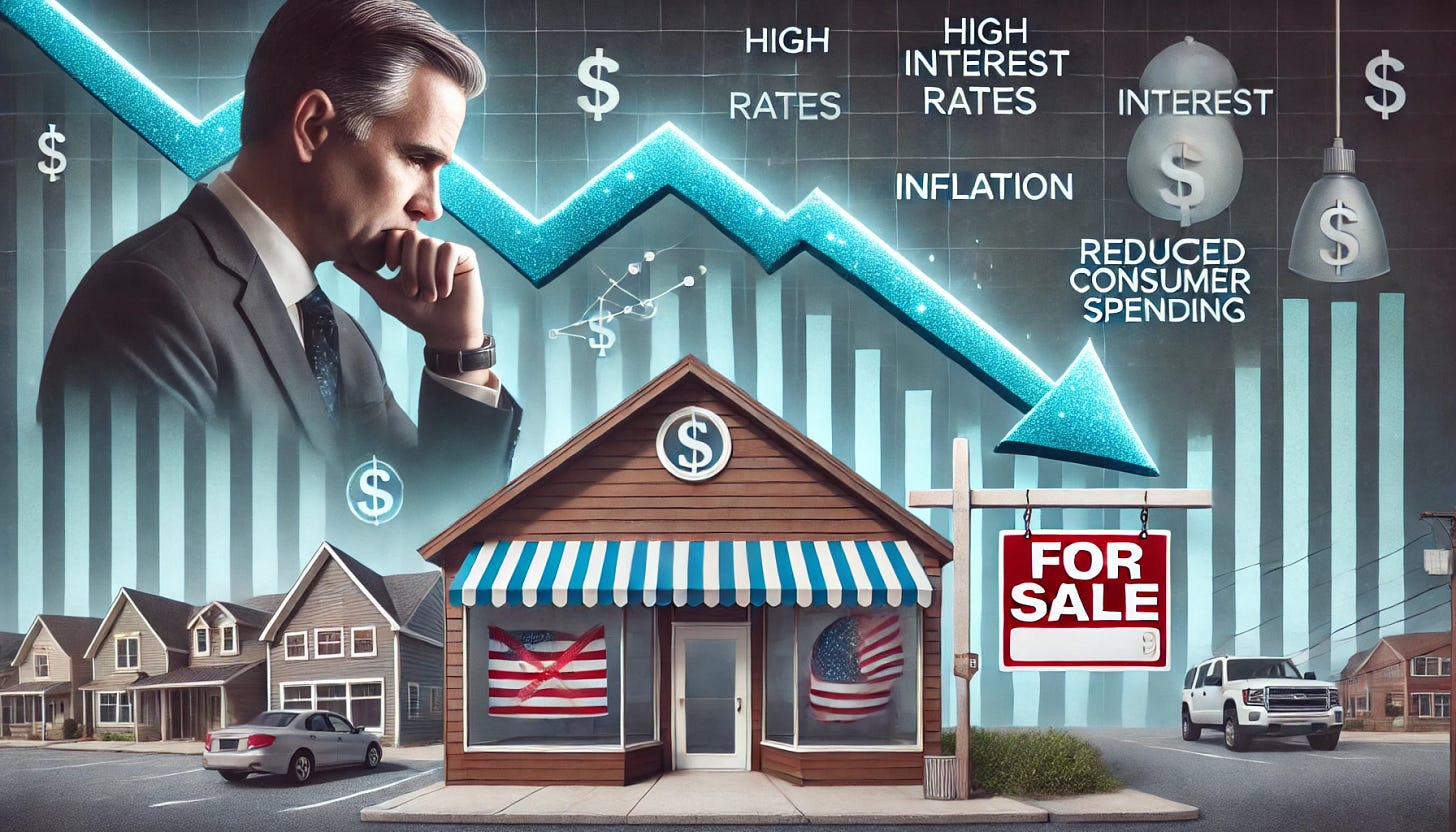Weather Bets: Your New Cash Cow
Market Sizzle: Bet on Weather, Insider Trading Scandal, Office Meltdown, Slowing Economy
Ever find yourself hoping for sun but getting rain instead? Now, imagine turning those unpredictable weather days into a money-making opportunity.
In the coming days, you can hedge your bets on weather and climate events. Whether it's a spike in temperatures or a sudden economic shift, you can place your bets and win big.
Cash In on Weather Bets
Interactive Brokers is launching ForecastEx, a platform for betting on economic and climate events. Users can bet if the consumer-price index will rise or if global temperatures will hit certain levels.
Starting July 8, ForecastEx will offer contracts on indicators like the Federal Reserve’s interest rate, U.S. consumer sentiment, and atmospheric carbon dioxide. These contracts are approved by the Commodity Futures Trading Commission and aren't securities.
Customers can buy "yes" or "no" contracts, with prices from 2 to 99 cents. If correct, the contract is worth $1; if wrong, it's worth nothing. This new trading offers a way to hedge against economic and weather-related events.
Retail Hero Accused of Insider Trading
Ryan Cohen, the darling of retail traders, faces insider trading allegations. A Bed Bath & Beyond board member, Sue Gove, suspected directors of sharing secrets with Cohen. He made $60 million from his short-term stake in the company.
Gove raised her concerns in a deposition for a lawsuit. She believed Cohen's trading was questionable and thought other directors likely agreed. Cohen denies any wrongdoing.
The SEC investigated Cohen's trades but found no fault. However, a group of investors sued him for fraud, claiming he misled them about his intentions. His quick sale of stock sparked the lawsuit, raising eyebrows within the company.
The lawsuit alleges insider trading but lacks specific leaked details. Cohen maintains he followed all rules and had a right to sell his shares. The case highlights the tension and mistrust within the company’s board.
Economy Slows Under High Rates
US growth slowed in early 2024. Higher interest rates and inflation hurt spending. Personal spending grew just 1.5% in Q1. Orders for business equipment fell, and the trade deficit widened. Job market and home sales weakened too.
The Fed's high rates aim to control inflation. But mortgage rates near 7% hurt the housing market. Fewer home sales happened. Personal income growth also slowed. Jobless claims rose, showing longer job searches.
Business investments dropped as borrowing costs increased. The stronger US dollar also affected exports. Overall, the economy showed signs of strain from high borrowing costs and inflation.
$250 Billion Office Meltdown
Nearly one-quarter of US office space will be vacant by 2026. Remote work is cutting commercial property values by $250 billion. Office vacancy rates are rising from 19.8% to 24%.
Landlords will lose $8 to $10 billion from lower rents and lease turnovers. This drop could destroy a quarter-trillion dollars in property value. Many companies prefer hybrid work, keeping office occupancy low.
Demand for office space has fallen, especially in older buildings. Workers now need 14% less space than before the pandemic. Office values may drop by up to $1.3 trillion globally by 2030.
Vacancy rates will level off as offices convert to other uses like warehouses or homes. The market will adjust to support new work habits over the next decade.
Quick Sizzles
General Mills Stock Drops: General Mills shares fell 4.6% after a 6% sales drop and a 9% profit fall. Only 1% growth expected next year.
Southwest Airlines Cuts Forecast: Southwest Airlines cut revenue forecast, citing booking pattern shifts and Boeing delays. Revenue per mile expected to drop 4%-4.5%.
NYSE Glitch Costs $48M: A NYSE glitch cost Interactive Brokers $48M as Berkshire Hathaway shares plummeted. Trades weren't canceled as requested.
$400B in Junk Loans Repriced: High demand for junk loans let US companies reprice $400B in debt at lower rates, easing borrowing costs.
New Gene-Editing Technique: Arc Institute's bridge RNA method allows precise DNA edits, promising advanced treatments for genetic diseases.
Chinese Gangs and Cartels: A money-laundering network between Chinese banks and Mexican cartels evades surveillance, complicating anti-drug efforts.
Big Banks Pass Stress Test: Fed stress test shows large US banks can withstand severe economic turmoil, maintaining strong capital levels.
That's all for today's Market Sizzle!









